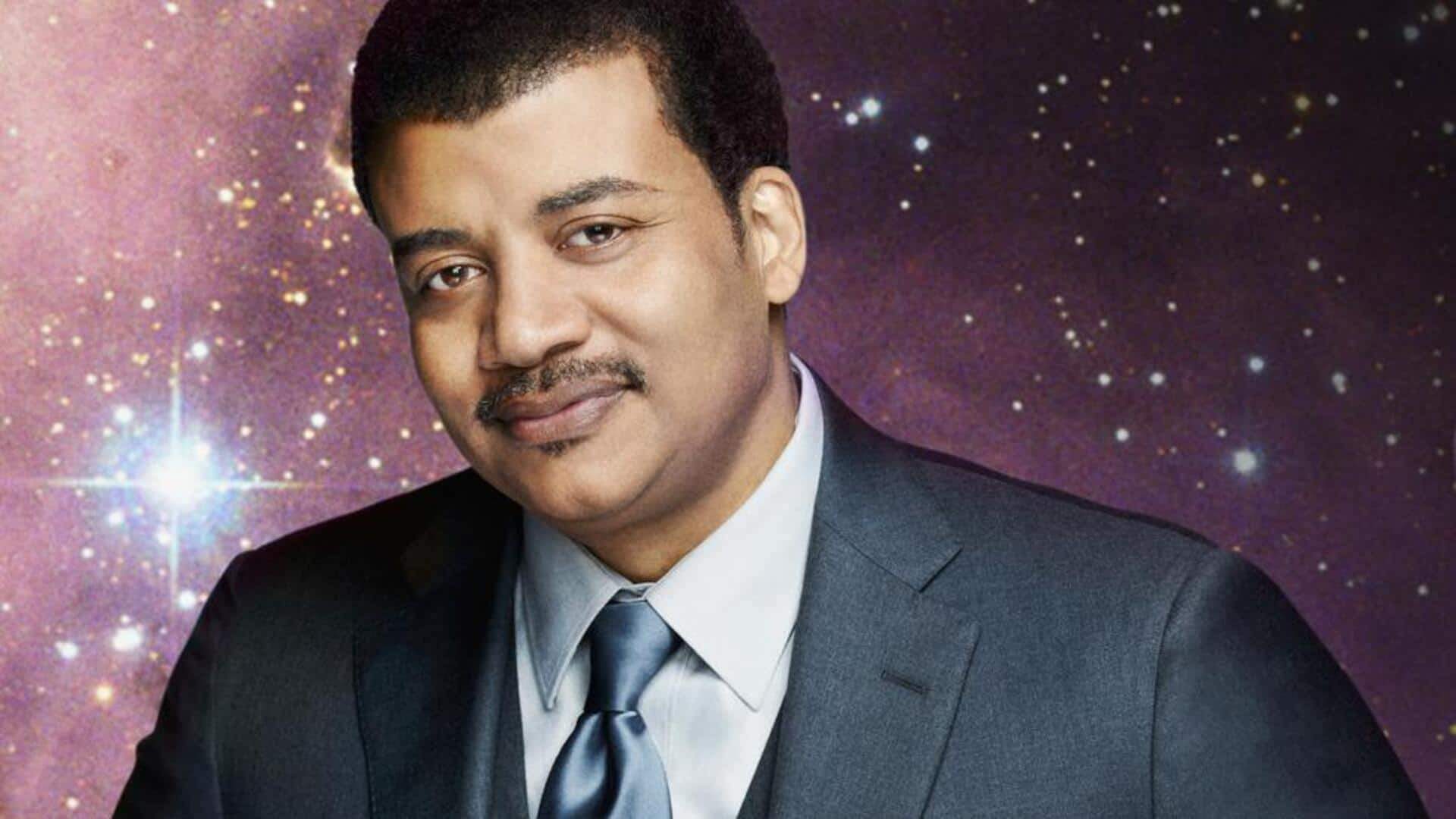
Neil deGrasse Tyson recommends these 5 books for cosmic lovers
What's the story
Renowned astrophysicist Neil deGrasse Tyson has inspired many with his insights into the universe. His book recommendations give a glimpse into the cosmos (and beyond), ideal for those wanting to expand their understanding of space and science. The books would give readers a deeper appreciation of the universe's complexities and wonders, making them perfect for curious minds wanting to know about our place in the cosmos.
Exploration
'Cosmos' by Carl Sagan
Cosmos is an all-time classic that explores the infinity of space and time. Carl Sagan takes you on a ride across the universe, visiting planets, stars, and galaxies. The book highlights how closely tied we are to the cosmos and pushes us to think about our presence in it. With a riveting narrative, Cosmos is a must-read for every astronomy buff.
Quick insight
'Astrophysics for People in a Hurry' by Neil DeGrasse Tyson
This book gives short and sweet explanations of complex astrophysical concepts. Neil deGrasse Tyson distills topics like dark matter and black holes into bits which can be easily consumed by those short on time but hungry to learn. The book serves as the perfect entry point into astrophysics without drowning readers in technical jargon.
Time travel
'A Brief History of Time' by Stephen Hawking
Stephen Hawking's work delves deep into the most fundamental questions of time and space. In A Brief History of Time, he touches upon black holes, the big bang theory, and quantum mechanics, among other topics, in an intelligible way. This book dares you to think deep about the nature of reality, all while offering you insights from one of history's greatest physicists.
Cosmic fabric
'The Fabric of the Cosmos' by Brian Greene
Brian Greene delves into how space and time weave together the fabric of our universe in this thought-provoking book. He touches on concepts such as string theory and parallel universes, breaking them down for the layman. The readers are invited to ponder over how the very knowledge of these ideas defines our reality itself.
Future vision
'Pale Blue Dot' by Carl Sagan
In this follow-up to Cosmos, Carl Sagan reflects on humanity's future among stars from an astronomical perspective. He discusses potential paths forward as we explore beyond Earth's boundaries. He emphasizes stewardship over our planet amidst cosmic exploration endeavors ahead. This is an inspiring read encouraging reflection upon humankind's role within broader universal contexts today.